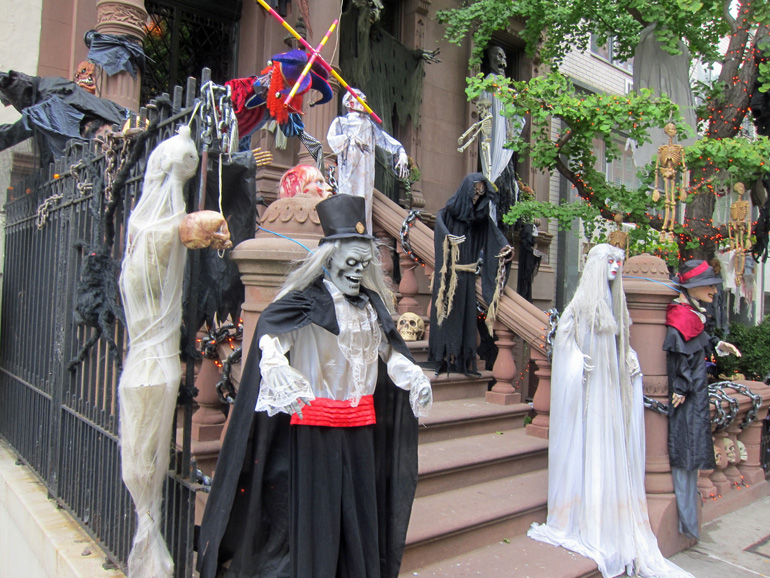Movie Note:
Lee Daniels’ The Butler
28 October 2013
One of the things that I did last week, when I wasn’t writing about The Goldfinch, was to take in Lee Daniels’ The Butler, the movie based on the career of Eugene Allen, longtime White House butler. He is called Cecil Gaines here, and his life story is manipulated a bit, to tighten the narrative screws. The result is an arresting and complex film about the abrasive ironies of being one of the top “house niggers” in the land — there is, sadly, no other way to put it — at a time when black Americans were breaking out of the era of Jim Crow. The film does not belabor the point, but the White House of 1952, when Gaines’s career there began, was in many ways the last of the grand plantation mansions, as befitted a capital residence nestled in the aristocratical heartland of Maryland and Virginia. The operation was on autopilot — Tidewater comme il faut.
The drama is necessarily somewhat skewed. Had Cecil Gaines participated in any White House dramas, he would have lost his job. Gaines raises his voice only at home, where his wife drinks a tad too much (at first) — no doubt because she is confused about her husband’s job, which is clearly a very good one but also essentially servile — and his elder son who smoulders with shame at his second-class citizenship. Later, when this son gets involved with sit-ins at lunch counters and freedom rides and the Black Panther Party, there is a good deal of nasty violence, with beatings and jail time for the son and worry for his parents.
It may have been just me, but I was terrified that the son’s activism was going to get the father into trouble at the White House. If it didn’t, that may have been because none of the men who presided over the civil rights struggle came from the Deep South. What happened instead, according to the movie, was rather different. In the movie, four of the five presidents whose tangents skate across the movie — Eisenhower (Robin Williams), Kennedy (James Marsden), Johnson (Liev Schreiber), Nixon (John Cusack), and Reagan (Alan Rickman) — treat Gaines as if he were a particularly valued and trusted attendant at an affluent country club patronized by broadminded, moderate Republicans. They’re not only decent, but slightly deferential, as if to compensate for an awareness that Gaines’s opportunities in life have been unnaturally constrained by the color of his skin. The exception, of course, is Nixon, who had no idea how to behave in a country club or anywhere else.
The White House provides The Butler with its allure, but its power comes from the superb cast, especially the performances of Forest Whitaker and Oprah Winfrey as Cecil and Gloria Gaines, and of David Oyewolo as their elder son, Louis. Mr Whitaker accomplishes the astonishing feat of presenting Cecil as an active man, and not some scarecrow in a morning coat to whom things happen. He never lets us forget that, whatever we might think of his job, Cecil is very, very good at it, and proud of being so. At home, Cecil is a good-natured but firm authority figure whose word, at least until Louis goes off to Fisk, is law. It is no surprise that Mr Whitaker delivers such a great performance; the surprise is that Ms Winfrey is every bit as good. Eventually, Gloria stops drinking, and as her life comes into focus — this is very curious — the actress assumes the troubled beauty and cinematic magnetism of Elizabeth Taylor. She plows through the crust of unconscious racism and exemplifies what a modern American woman ought to look like. David Oyewolo is new to me, but I look forward to seeing him many times. He brings a fine degree of nuance to Louis’s many confrontations with his father.
As for the presidential impersonators, they’re all superb, but it’s hard to deny that Alan Rickman walks away with the prize — probably because he has the unfair advantage of playing a presidential impersonator.
At another time, I might have been heartened by this movie, which would have seemed to be saying, Look how much better things are now. That’s hard to do at the moment. The only positive thing about the state of the nation today is that more and more people are willing to acknowledge that the civil rights struggle, far from being won, may be just beginning; for there are still, as there were fifty years ago, too many people in this country who don’t accept the deconstruction of official racism. They may no longer spit at black Americans who claim equal rights, but their hatred of the government that betrayed their primacy burns as corrosively as ever. What’s worse, their naked and very ugly hostility has metastasized into a dreadfully plausible mendacity. The screaming white witches of Lee Daniels’ The Butler have been transformed into those more telegenic harpies, Sarah Palin and Michele Bachmann.

